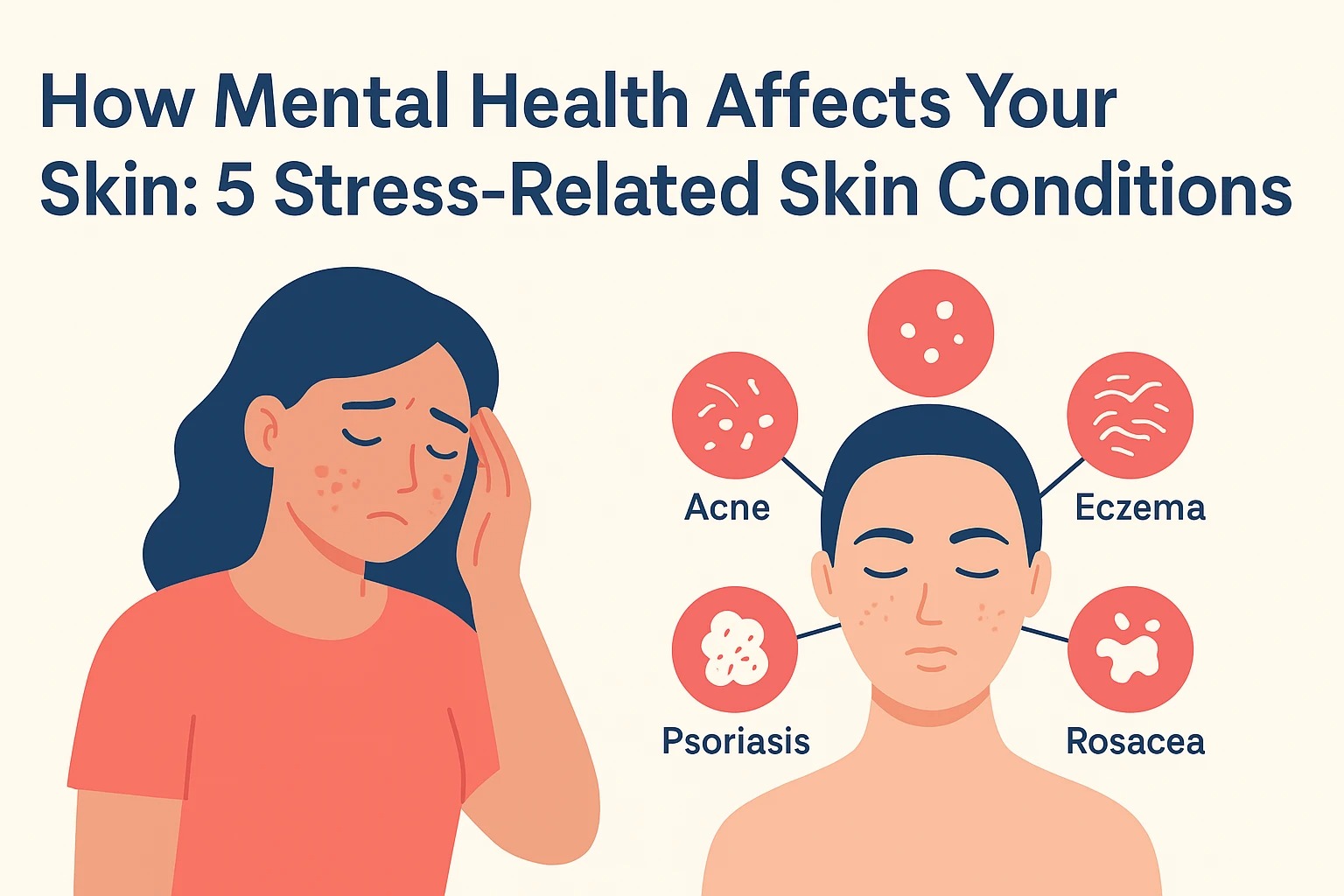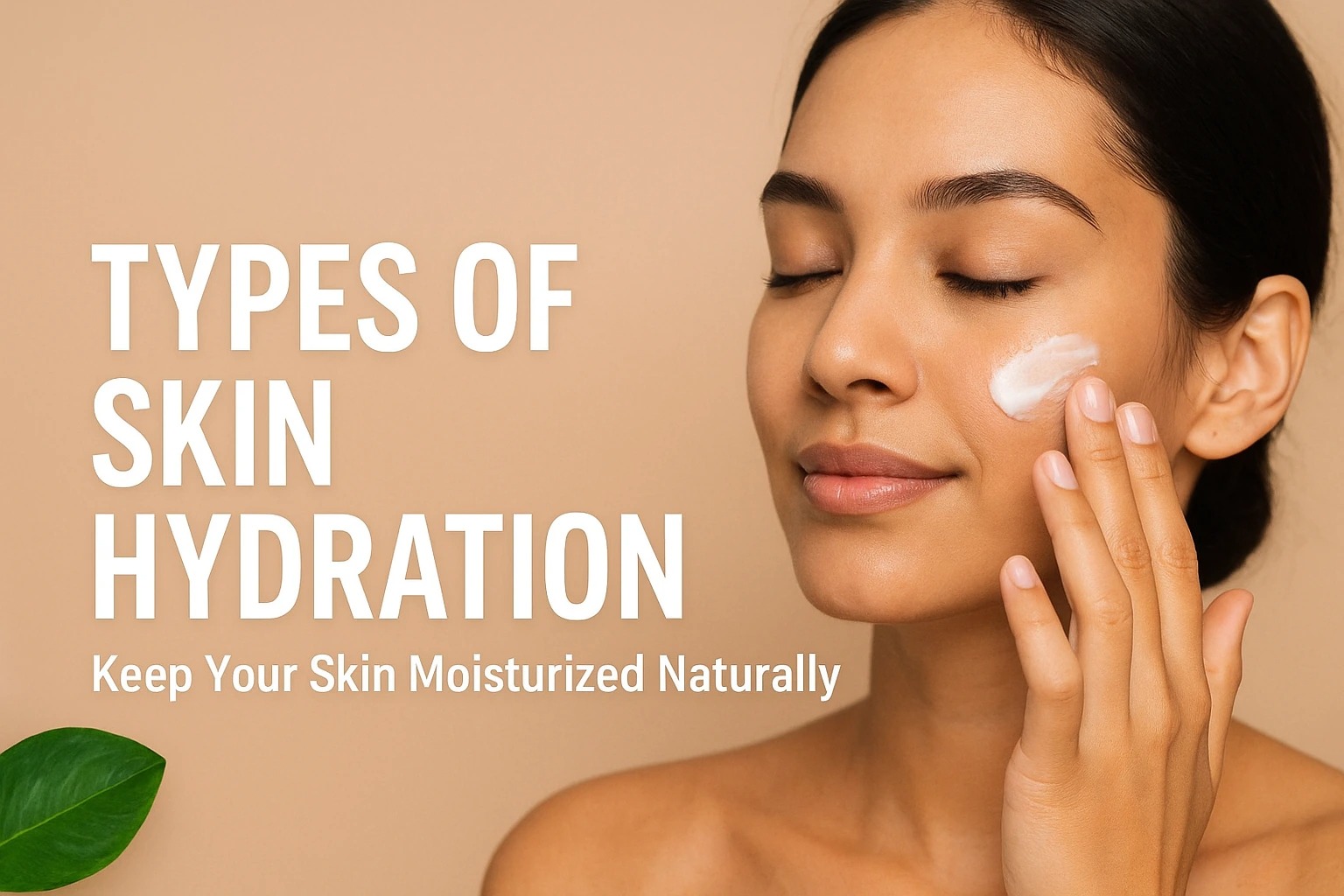Inflammation may be a direct result of mental health problems on the skin and can be triggered by emotional causes. Click to find out more!
In addition to being the biggest organ in the human body, the skin also serves as an indicator of general health, including emotional well-being, as mental health has a variety of affects on the skin. Dermatological issues like psoriasis, hives, and acne can be brought on by or made worse by factors like stress, worry, and other psychological disorders.
This is due to the strong relationship between the neurological system and the skin, and emotional disturbances can compromise the skin barrier by changing hormone production and the immunological response. Maintaining mental health is crucial because of this. The body and mind are intimately related, after all. So let’s find out more about how mental health affects skin. Enjoy your reading!
What impact does mental health have on our skin?
The biggest organ in the human body, the skin is vital for controlling body temperature, producing vitamin D, and protecting the body from harmful substances. However, environmental and physical elements are not the only things that affect our health. This is due to the fact that emotional states may show how mental health affects the skin.
For instance, excessive cortisol production—also referred to as the stress hormone—is triggered by stress and worry. When used in excess, it changes how the sebaceous glands work, making the skin more oily and encouraging the development of acne.
Additionally, the skin barrier may be compromised by hormone imbalances brought on by emotional problems, making the skin more vulnerable to inflammation.
Emotional triggers can thus cause or exacerbate some dermatological disorders, including psoriasis, urticaria, and atopic dermatitis. Put another way, continuous stress or anxiety episodes can cause the immune system to react dysregulatedly, resulting in severe itching, peeling, and inflammation of the skin.
5 Skin Problems Triggered by Stress You Should Know About
- Seborrheic dermatitis
The scalp is the main area affected by seborrheic dermatitis, a chronic inflammatory skin disorder that can also occur in oilier locations including the face, upper chest, and behind the ears. It can range from mild episodes to more severe flare-ups and is marked by redness, peeling, and itching.
Emotional factors like stress and worry can exacerbate this illness because they affect the skin barrier and immune system, making the skin more prone to inflammation. AndrezzaTelles Westin, a dermatologist, says this:
Seborrheic dermatitis is classified as a disease characterized by factors such as increased sebum production and the presence of microorganisms on the scalp, associated with inflammation. It can occur due to a genetic predisposition and be aggravated by factors such as stress .
- Psoriasis
Psoriasis is a long-term, non-transmissible inflammatory skin condition that causes reddish, scaly lesions along with dryness, itching, and occasionally discomfort.
These lesions frequently develop on the back, elbows, knees, and scalp. Experts underline that in addition to triggers like stress, genetic and immunological variables have a significant influence, even though the precise reason is yet unknown.
- Herpes simplex or cold sores
Although many people never experience symptoms, the Brazilian Society of Dermatology believes that over 90% of the population is infected with the herpes virus. Stress, inadequate immunity, and prolonged sun exposure are some of the reasons that might reactivate this extremely infectious virus.
In light of this, the impact of stress on the immune system is directly related to the association between the beginning of herpes and mental health. This occurs as a result of stress releasing chemicals like cortisol, which weaken the immune system at high concentrations.
- Acne
It may surprise you to learn that stress can really cause acne. Stressful conditions cause the body to release more cortisol, which encourages the sebaceous glands to produce more oil.
Thus, this extra oil can block pores, causing pimples and blackheads to form, along with germs and dead skin cells.
- Hives
Lastly, while stress does not directly cause hives, it can exacerbate them. It often appears as crimson, elevated skin sores called welts or hives, along with severe itching. The symptoms of these responses can sometimes last up to six weeks, but they can sometimes arise unexpectedly and go away in a matter of hours.
Thus, the body’s production of inflammatory chemicals in reaction to stress, including histamine, which aids in the formation of skin lesions, is connected to the start of urticaria and mental health.
How can you avoid the effects of mental health on your skin?
For those who want to minimize the impact of mental health problems on their skin, there are some services available. View the following:
- Seek therapeutic assistance;
- To assess a person’s social environment and determine how it affects their mental health;
- Determine the boundaries of your emotions;
- Utilizing relaxation methods like yoga and meditation in addition to engaging in physical exercise and hobbies;
To prevent these discomforts and improve your quality of life, it is essential to identify your needs and seek medical assistance. What were your thoughts on our content, then? Tell us!
Must Read:












Leave a Reply